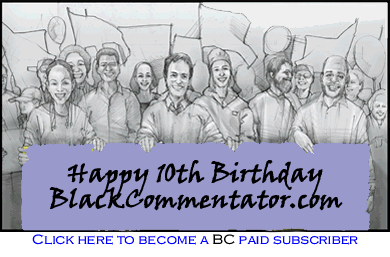One of the most striking
features of the Trayvon Martin case has been the revelation
of similar such lynchings taking place, whether carried
out (or allegedly carried out) by law enforcement authorities
or individual, non-state perpetrators of violence in the
recent past. We have to, therefore, ask ourselves why
are these cases emerging and what do we need to do about
them?
Trayvon
Martin�s case must be understood to be a lynching. It
was an extra-judicial killing in a long line of extra-judicial
killings carried out in the history of the USA. Such killings have been
a significant instrument in exercising racist oppression,
but they have also been used against political opponents
of the dominant forces in this society. Because of the
manner in which people of color are caricaturized and
demonized in US
society, suspicion is invariably cast on the victims of
lynchings. Such suspicion can be along the lines of ��they
should not have been wearing that outfit�� (which, interestingly,
is also frequently used when women are raped and the rapist
is trying to blame the victim), to casting deeper aspersions
on the character and intention(s) of the victim, e.g.,
��they were threatening me��
Justice
for the victims of lynchings is incredibly difficult to
achieve precisely because the lynchings do not take place
in isolation yet are portrayed as such. This is what makes
the racial disparity in the responses to the Martin killing
so important to note. When each killing is viewed outside
of the larger context of racist oppression - which is
the tendency of many, if not most middle aged to older
whites - one can debate particularities and act, in effect,
as if the killing was either an accident or an unusual
occurrence. In other words, in order to defend the name
of Trayvon Martin and to gain justice, the lynching must
be placed in the larger context. Just as with the anti-lynching
movement of much of the 20th century, each individual
case of lynching must be publicized and listed along with
other cases. The lynchings must be seen for what they
are, i.e., part of a pattern.

While
fighting each case, whether that of Trayvon Martin or
the police shooting of Kenneth Chamberlain (in White
Plains, NY), we have to realize that
these assaults and killings will continue to take place
as long as racist oppression continues. Yet that conclusion,
left alone, can result in despair and paralysis, reminding
me of a situation I encountered in the 1980s in Boston
where, in the aftermath of a police killing of an African
American, a cultural nationalist associate of mine said
��well, Bill, there is really nothing that we can do about
this other than educating people about racist violence��

Wrong
response. We need to nationalize these struggles.
This is happening in the Trayvon Martin case, where demonstrations
have been taking place around the country. Rather than
keeping the struggle localized, the organized outrage
in response to his killing has become well known, in part
as a result of the Internet.
Second,
we need a movement against �Stand Your Ground� legislation.
This will need to be nationally coordinated and, perhaps,
take the form of the anti-lynching campaigns of the 20th
century. The question as to whether the aim is one piece
of national legislation or multiple state-wide campaigns
will have to be studied, but we need to flip these �Stand
Your Ground� acts on their head and show them to be what
they are, forms of returning us to the days of the Wild
West, the posse and lynch-mobs.
Third,
we need to rethink �neighborhood watch� programs. In general
such programs have focused on criminal elements entering
various communities. Neighborhood watch in communities
of color needs to be re-envisioned to also include keeping
our eyes on the police. In the late 1960s the Black Panther
Party would follow the police around. This can be highly
dangerous, but organizing one�s community to be observant
of both criminal activity and police abuse is a different
matter. In this technological era, filming the activities
of the police are becoming more and more common.
When
the furor fades in the case of Trayvon Martin, as it will
inevitably do, we have to make sure that there is a level
of consciousness and organization built to carry on the
justice struggle. We seem to be entirely too surprised
and too unprepared each time there is a new lynching,
whether it is carried out by rogue, racist assailants
or abusive and unaccountable police. Enough!

BlackCommentator.com Editorial Board member, Bill Fletcher, Jr., is a Senior Scholar with
the Institute for
Policy Studies, the immediate past president of TransAfricaForum and co-author of Solidarity Divided: The Crisis in Organized Labor and a New Path
toward Social Justice (University of California Press), which examines
the crisis of organized labor in the USA. Click here to contact Mr. Fletcher.

